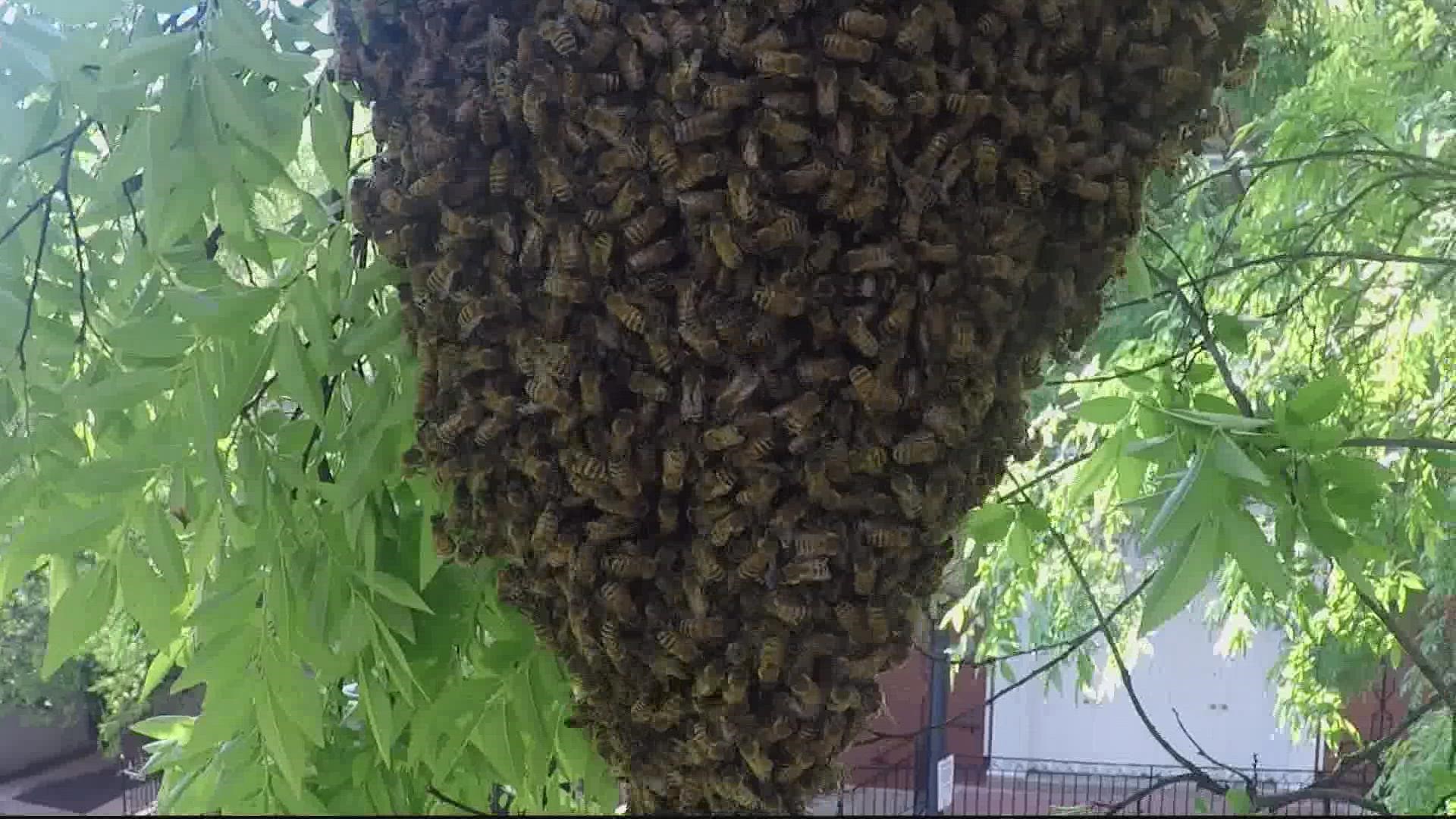WASHINGTON — Nectar-producing trees are in full bloom right now throughout D.C., Maryland and Virginia, bringing massive swarms of honeybees into some densely populated areas.
Spotting a cluster that may include as many as 30,000 bees can be a frightening sight and that's why there are alliances of groups throughout the metropolitan area trained and equipped to remove and relocate those honey-producing bees to safer areas.
“It could be menacing if you thought they were going to come and get you," said D.C. Beekeeper Alliance and 'Swarm Squad' member Del Voss. "But they’re just looking for a place to live."
We asked Voss to call us when he was dispatched to a call involving a honeybee swarm. D.C. residents can email or call the 'Swarm Squad' hotline if they spot honeybees needing relocation.
Voss says members of the alliance race to be the first to snatch up calls for honeybee rescues so if you report a swarm, it's likely someone will show up pretty quick.
When Voss called us, we were literally a block away in Georgetown filming another story and we walked to 31st St NW between M & N Streets where we met him unloading some materials from his van.
Literally, 20 feet above his van was an incredible and daunting swarm of honeybees that Voss estimated could include 30,000.
"There’s just thousands and thousands of them," said Georgetown resident John Wilson who called to report the swarm. Once they arrived, he stepped out onto his porch with a margarita to watch the relocation process unfold.
"They’re Monday’s entertainment for the cocktail hour in Georgetown,” said Wilson.
There's always something buzzing with Voss. He keeps thirty hives on the rooftop of his home in Capitol Hill, SE. Typically a hive contains 50,000 bees. So with some simple math, we deduce that Voss has 1.5 million bees on his property. Capitol Hill residents bee-ware!
On this day, Voss is extricating tools from his van including a telescoping pruning pole, a ladder, a tarp and a cardboard box.
“It's going to be a little chaotic because they’re not going to be happy," said Voss. “They found this temporary spot. They like it. And I’m going to cut the branch and that whole group of bees is going to fall right here," he says while pointing to a cardboard box he's placed directly underneath the swarm.
Passers-by, in the meantime, were told to cross the street as they stopped to see what all the (clears throat) buzz was about.
“If I can get the queen bee, that’s just one out of that group of 20,000, if I can get her inside my box the other bees will follow," said Voss who also sprayed the inside of the box with 'queen bee pheromone' a scent meant to entice the bees into his box.
As Voss carefully maneuvered into place and prepared to cut the branch holding the bee swarm, many of the bees decided it was time to go. A lot of them flew away as the branch was cut and fell into the box, capturing only a handful of the 20,000 bees.
“Bees have their own ideas. I think they were getting ready to move right when I cut them down and we just made them airborne," said Voss who was clearly deflecting some of the blame onto me.
The bees relocated to a spot about a block north on 31st Street NW & N St.
Voss says typically honeybee swarms will recongregate within fifteen minutes while 'messenger' bees will head off from the main pack and scout out more suitable permanent locations for the hive to settle.
"Isn’t it wonderful?" asked Wilson. "We have so many honeybees in Georgetown and they're healthy. There's 30,000 of them up there and they're ready to be saved."
WATCH NEXT: The art of parkour | Mic’d Up

